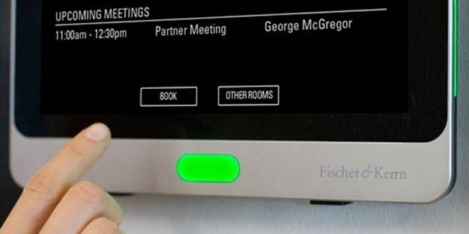To provide the best experiences, we use technologies like cookies to store and/or access device information. Consenting to these technologies will allow us to process data such as browsing behaviour or unique IDs on this site. Not consenting or withdrawing consent, may adversely affect certain features and functions.
The technical storage or access is strictly necessary for the legitimate purpose of enabling the use of a specific service explicitly requested by the subscriber or user, or for the sole purpose of carrying out the transmission of a communication over an electronic communications network.
The technical storage or access is necessary for the legitimate purpose of storing preferences that are not requested by the subscriber or user.
The technical storage or access that is used exclusively for statistical purposes.
The technical storage or access that is used exclusively for anonymous statistical purposes. Without a subpoena, voluntary compliance on the part of your Internet Service Provider, or additional records from a third party, information stored or retrieved for this purpose alone cannot usually be used to identify you.
The technical storage or access is required to create user profiles to send advertising, or to track the user on a website or across several websites for similar marketing purposes.
 The UK’s 5.7 million businesses are spending £29.1 billion on energy every year, and could be making significant reductions in its cost according to a study by printerland.co.uk. With Earth Day this Sunday, (April 22) the research claims that tiny tweaks to workplace routines could make a positive impact on the environment, whilst slashing companies’ electricity bills.
The UK’s 5.7 million businesses are spending £29.1 billion on energy every year, and could be making significant reductions in its cost according to a study by printerland.co.uk. With Earth Day this Sunday, (April 22) the research claims that tiny tweaks to workplace routines could make a positive impact on the environment, whilst slashing companies’ electricity bills.












 More than half of working adults believe that UK businesses are not doing enough to support the physical and mental wellbeing of their employees. The vast majority (86 percent) believe that firms are specifically not doing enough to help employees deal with work-related stress, anxiety and other mental health issues. And with seven out of 10 of those surveyed by
More than half of working adults believe that UK businesses are not doing enough to support the physical and mental wellbeing of their employees. The vast majority (86 percent) believe that firms are specifically not doing enough to help employees deal with work-related stress, anxiety and other mental health issues. And with seven out of 10 of those surveyed by 
 Robots will not as feared steal people’s jobs and will eventually improve productivity, but they will undercut workers’ contribution sufficiently to depress their wages. According to the third report in Barclays Impact Series, titled
Robots will not as feared steal people’s jobs and will eventually improve productivity, but they will undercut workers’ contribution sufficiently to depress their wages. According to the third report in Barclays Impact Series, titled 






 Following the deadline for organisations to publish their gender pay this week, it came as little surprise to find that almost
Following the deadline for organisations to publish their gender pay this week, it came as little surprise to find that almost 













